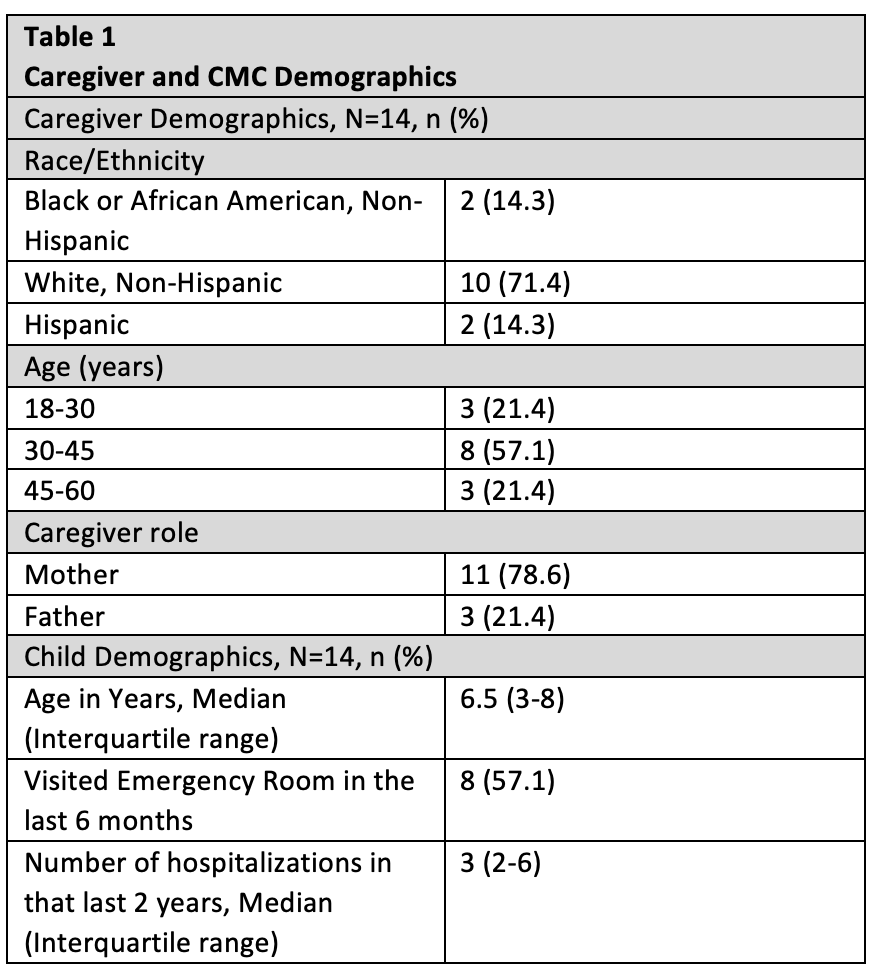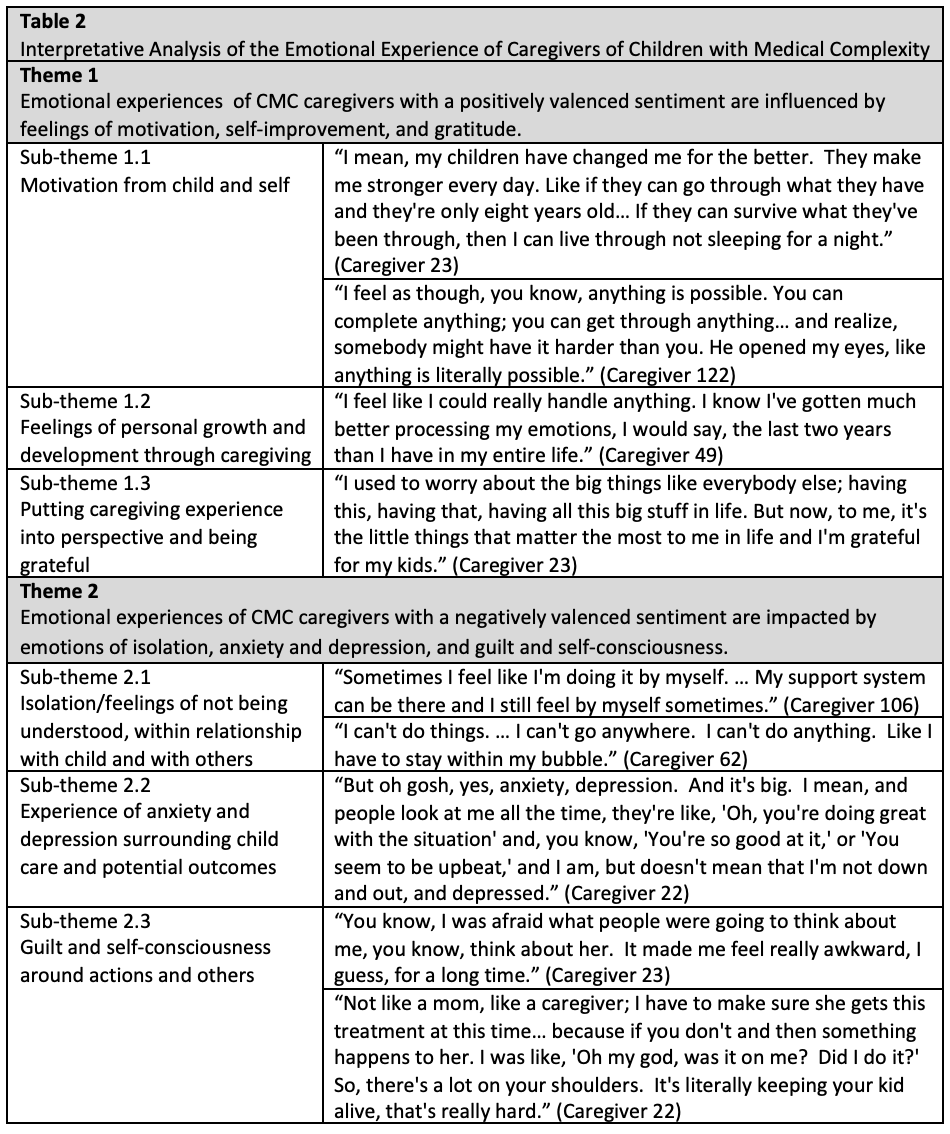Children with Chronic Conditions
Session: Children with Chronic Conditions 1
252 - A Qualitative Study of Emotions in the Adaptation Process of Caregivers of Children with Medical Complexity
Friday, May 3, 2024
5:15 PM - 7:15 PM ET
Poster Number: 252
Publication Number: 252.331
Publication Number: 252.331

Alejandro J. Vera, MSc (he/him/his)
Human Subject Research Specialist
URMC Golisano Children's Hospital
Rochester, New York, United States
Presenting Author(s)
Background: Caregivers of children with medical complexity (CMC) navigate many emotional, physical, and social contexts while parenting their children with intense needs. There are gaps in understanding the sentiments associated with the emotional experiences of caring for CMC.
Objective: This study aims to describe the emotional experiences of CMC caregivers and characterize their emotions based on how they represent and report their experiences.
Design/Methods: We conducted semi-structured interviews focusing on the adaption and emotions of CMC caregivers from our institution’s complex care service at an urban, academic children’s hospital. Eligibility criteria included: caregivers >18 years old, English-speaking, and caring for CMC aged 1 to 18 years old. Participants were identified through electronic health record registries, enrolled over telephone, and interviews were conducted over a video-conferencing platform. We audio-recorded, transcribed, and assigned process, emotion-based, and in vivo codes to the transcripts using qualitative coding software (MAXQDA). To further characterize the emotional experience through sentiment analysis, we stratified the identified emotion-based codes as either positively (desirable association) or negatively (aversive association) valenced sentiments, using the NRC Word-Emotion Lexicon (EmoLex), developed by Mohammad et al. (2011). Sentiment analysis is a process where associations (valence and emotion) are detected from subjective texts. We conducted interpretive analysis to identify themes, which were confirmed through group consensus.
Results: We interviewed 14 CMC caregivers from June to August 2021, including 11 mothers and 3 fathers (additional demographics in Table 1). Our analysis reached thematic saturation and produced two primary themes about the emotional experience of CMC caregivers, including sub-themes and representative quotes of emotions described (Table 2). The identified themes included: 1) Emotional experiences of CMC caregivers with a positively valenced sentiment are influenced by emotions of motivation, self-improvement, and gratitude; 2) Emotional experiences of CMC caregivers with a negatively valenced sentiment are impacted by emotions of isolation, anxiety and depression, and guilt and self-consciousness.
Conclusion(s): This study highlights the breadth and depth of emotional experiences of CMC caregivers in adapting to their caregiving role. By characterizing the valence of their emotions, we hope to inform the development of interventions that strengthen positively valenced sentiments and reduce the experience of negatively valenced sentiments.


